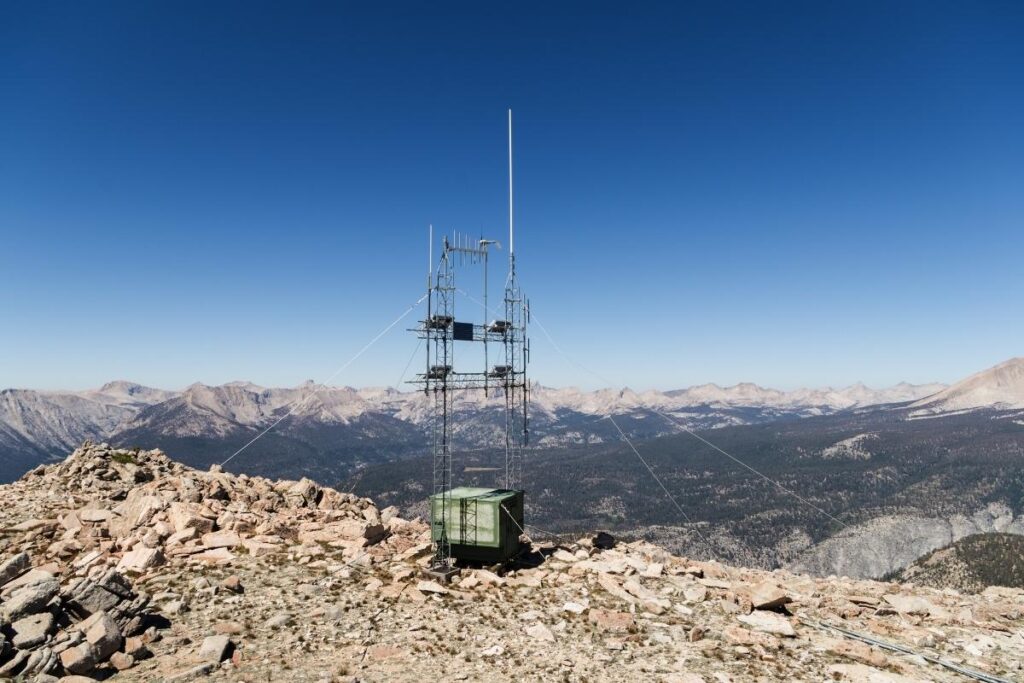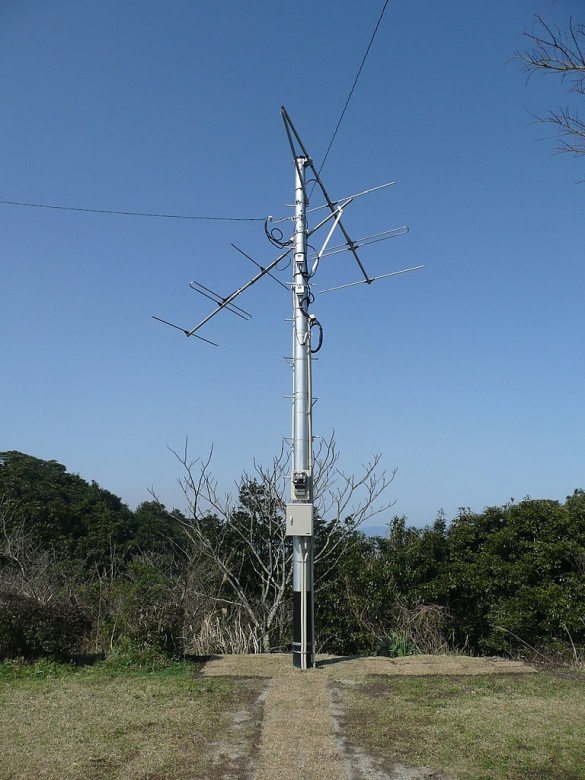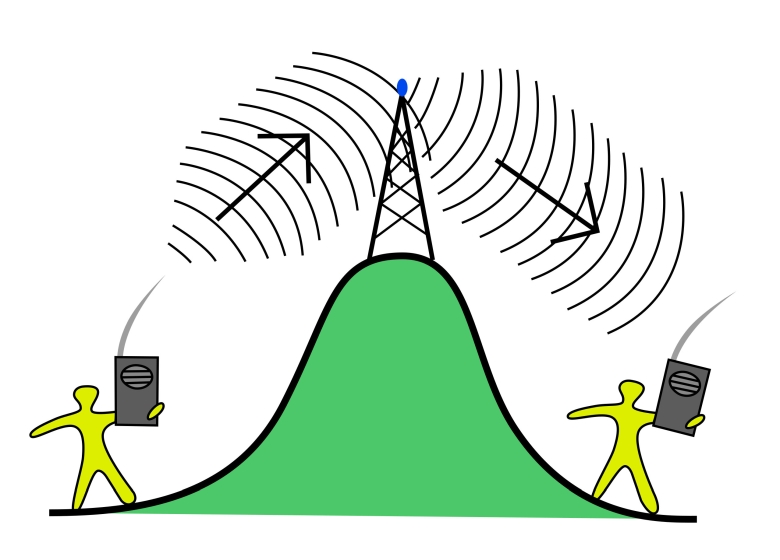
If you’re just getting involved in the communications aspect of your preps, you’ve likely heard repeated references to two sites in particular: RadioReference and RepeaterBook. But just what are these two sites? What do you use each of them for? And is one better than the other?
Let’s take a closer look…
The Basics of RepeaterBook
RepeaterBook is specifically tailored for those who need to find the amateur radio repeaters anywhere in the world. Whether you’re currently in America or anywhere else on the planet, if there’s a repeater out there that you can access, it’s likely to be listed on RepeaterBook.

The reason that you may want to keep RepeaterBook handy is if two-fold. First, let’s say that you’re just now getting into ham radio. There are going to be a lot of repeaters in your area, and each of them is going to have a number of specifications that you’re going to have to program into your radios if you want to use them.
RepeaterBook is the best place to find the repeater specifications in your area. I think it’s better than any of the print versions that you’ll find out there for the main reason that it’s updated daily. If you buy yourself a print version of a repeater directory for the United States, you’ll still have a fantastic resource on your hands that will still work for you in a grid-down situation, but once those words are printed on the page, that’s what you’ve got.
- English (Publication Language)
- 560 Pages - 01/03/2019 (Publication Date) - ARRL Inc (Publisher)
RepeaterBook is also good to have on hand in case you’re traveling. Let’s say that some you’re driving out-of-state when your truck breaks down in the middle of nowhere. If you can reach your family by phone to tell them what just happened, you could then use RepeaterBook to find the listings for repeaters nearby that you could access to perhaps ask for help from other hams.
You could even search for the repeaters in Ukraine if you happen to just be driving through (though using a repeater in a war zone would be an absolutely terrible idea. “Hey! Drop the artillery right here!”).
RepeaterBook also allows you to search for repeaters by band (2m, 70cm, etc.), by “feature” (whether it has autopatch, DMR, EchoLink, etc.), by the systems that are linked to it (groupings of hams/repeaters), by the emergency services (such as SKYWARN) that are linked to it, by the major nearby roads, by town, county, the highest rated, or by those that were recently updated.
This makes it incredibly useful to find exactly the repeater that you’re looking for. You could be lost in the middle of nowhere, but as long as you know the major interstates nearby, you could still (hopefully) get access to a nearby repeater that may have people listening to it that would be able to assist by giving you directions.

And that’s essentially the limits of what you can do with RepeaterBook. If you have any type of repeater question whatsoever, they should be your first go-to source.
The Basics of RadioReference
Whereas RepeaterBook is about finding amateur radio repeaters, RadioReference will allow you to find everything else. It’s here that you’ll be able to get all of the information you need for the local police, EMS, fire, other civic frequencies, and more.
For example, if I look in Anderson County, South Carolina, I will find the information I need to listen to the police, fire department, the dispatch centers, the detention center, park maintenance, street maintenance, the transit buses, trash collection, the local college security team as well. That’s a lot of information I could glean about various aspects of society on a daily basis.
Think of RadioReference as your directory for government frequencies and more. If you want to make ham radio contacts for a contest, you use RepeaterBook. If you want to get intel on what is happening in your area, you are going to want to use RadioReference.
You can also use RadioReference to search for the call signs of somebody that you may know (provided they’re a licensed ham). Let’s say I want to look up the creator of RepeaterBook. All I have to do is go to the RadioReference homepage, hover over the ‘Databases’ tab at the top left of the page, click ‘Amateur Radio Database’ when it pops up (which you can access just by clicking this link instead), type in his call sign in the ‘Lookup Callsign’ box, and then I’ll see his information. (He publicly lists his call sign on his blog, so don’t fell like I’m putting out his private information without any precedence or anything here.
This can be a pretty useful tool if you’re needing to make contact with a specific ham.
RadioReference also has a pretty good selection of articles to read that will help you with your understanding of a number of basic radio concepts. You can find their Wiki here, but one of the examples of an article that they highlight is this one of how to make a homebrew off-center dipole.
They have a pretty impressive forum as well. A forum is only as good as its members, and considering that RadioReference is known by every ham in existence, you have a massive number of forum users here with a wealth of information on a very tricky subject: radio.
There’s a lot of cool information that you likely won’t find elsewhere here as well. Want to hear a bit about the radio chatter that is coming out of Ukraine at the moment? Check out this forum post here.
Here’s a post that looks at how Chinese-made equipment from Huawei could interfere with American nuclear facilities. And while both of these posts link to news stories, you can often find guys snapshotting waterfall displays of mysterious radio frequencies they’ve intercepted as well. It’s all very cool.
Yet another aspect that you get is Broadcastify. I’ve never been able to figure out if this is actually put out by the same guys that run RadioReference, but it’s all linked through the RR site, so I would assume so. Broadcastify will let you get a lot of radio information from just about anywhere within the United States without even needing a radio. All you need is an internet connection.
So, if I was in Atlanta as an “autonomous zone” was being set up, but I was on a business trip and didn’t have a radio on me, I could go to Broadcastify, select Atlanta as the location, and then listen to live audio from the police dispatch center to get more actionable information than what would be available to me via the TV.
RadioReference vs RepeaterBook
While this is something of an apples to oranges comparison, if I could only pick one out of the two resources, I would pick RadioReference, hands down. I typically always find more useful information out of the radio frequencies I find on RadioReference than I do off of RepeaterBook.
If I want to know what the local weather is, or how the counties tomatoes are growing, then I tune into a local repeater. If I want to know actual actionable information, then I use RadioReference. Not only do they have a highly detailed list of pretty much the entire United States, I really enjoy their forum as well.

While both websites are tools that you need to know about, some tools are more useful than others. I would consider RadioReference overall the more useful tool out of the two of these sites, but that doesn’t mean you should reject RepeaterBook altogether. It’s fantastic and can do things that RadioReference cannot.
But, if I could only pick one, I would pick RadioReference.
You Need Both of These Resources.
You really do need access to both of these resources to get the most out of the radio waves that are floating around you 24/7 as it is. There is a LOT of information that you will miss out on if you’re not utilizing both RepeaterBook and RadioReference to get the most of the information out of your area.
Imagine you have had to travel to California for a pooper scooper convention (they sell really well there). It’s riot season, and as you are trapped in your hotel with your UV-5R, you want to know more about what’s going on around you. You could most certainly turn on FM broadcast radio and your TV to get some information, but you’ll get a much better picture of what is going on if you can use Repeaterbook to listen in on the local repeater traffic and use RadioReference to listen in to the police, ambulance drivers, and firemen.
The two tools complement each other nicely in such a situation. But what are your thoughts on the two tools? Are there other advantages of these sites that we didn’t discuss above? Do you have a preference out of the two? Let us know in the comment section below.

